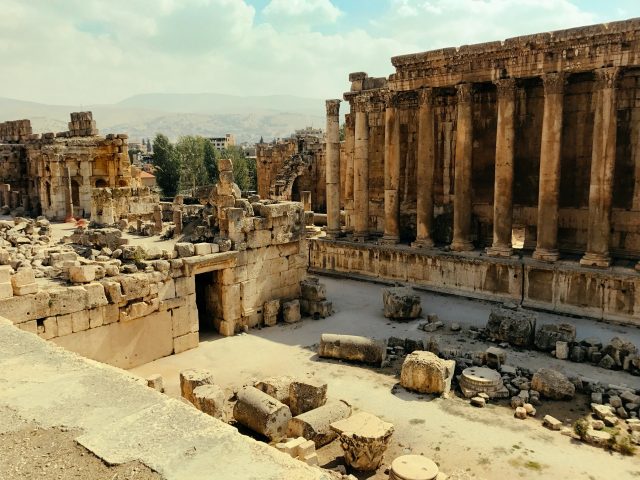Who were the people of Tyre and Sidon we read about in the Old Testament? There are a few notable characters who hailed from this region of Palestine. When Solomon began building the Temple, Hiram king of Tyre provided the cedar (2 Chron. 2:1-11). Jezebel was a princess of Sidon, who violently opposed God’s people and persecuted His prophets (1 Kgs. 16:31). Tyre, Sidon, Beirut, and Byblos were the major city-states that made up the Phoenician nation. These city-states were autonomous, meaning they ruled themselves. Though they jointly made up the Phoenician civilization, they were not under a centralized kingdom. In this bulletin article I want to examine where the Phoenicians came from and how the Bible, history, and archaeology work together to give the full account of these people.

Little is recorded about the Phoenicians until Israel is established because the Phoenicians were the remnant of the Canaanites expelled by Joshua. The most likely outcome was the Canaanites who survived the conquest banded together at strongholds just outside Israelite control. The tribe of Asher was given much of the coastal land as inheritance, but the city of Tyre was a boundary for their territory (Josh. 19:29). Simply put, the Phoenicians are the nation that arose after the Canaanite tribes were removed. When Israel conquered Canaan, they notoriously forsook God and went after the false gods of the land. They served the Baals and Ashtoreths, which were the deities of the Canaanites (Judg. 2:10-23). Fast-forward to the Phoenician Jezebel who hailed from the city-state of Sidon. Which deities did her people worship? Jezebel financed and fed the prophets of Baal and Ashtoreths (1 Kgs. 18:19). Her own father’s name is Ethbaal (1 Kgs. 16:31). Do not think of the Phoenicians as a new nation in Canaan, but as a continuance of the local people in the promised land. God commanded the Israelites to utterly destroy the Canaanites, Israel did not, and the Phoenicians were a result (Deut. 20:16-18).
The city-states that made up Phoenicia were by no means strong militarily. In fact, Tyre’s tactic when war came to their land was to retreat from the coastal city to an island off the coast that was easier to defend. This tactic was successful in resisting the Babylonians (Ezek. 29:17-20), not so successful against Alexander the Great (Ezek. 26:12). War was not the tool utilized by the Phoenicians in expanding their borders. What set the Phoenicians apart from every other nation in antiquity was their unparalleled sea trade and travel. The Bible describes the Phoenicians as the seafaring traders of the ancient world (Is. 23:1-12; Ezek. 27). Their location in Palestine not only placed them on the coast of the Mediterranean Sea, but provided them with the best lumber for ship building. While studying, you may have run across the cedars of Lebanon. These cedars were highly valued by all nations around the Mediterranean. The nations who had an abundance of these cedars were wealthy (1 Kgs. 10:27). The Phoenicians put this highly sought-after lumber to use by creating ships that could sail the open sea. Other seafaring civilizations, such as the ancient Greeks were not able to sail in open water. They would instead sail the coastline or hop from island to island. The Phoenicians were not restrained to the coastline, but could sail wherever they desired. This gave them the ability to trade with and colonize places as far as Sicily, Sardinia, Spain, and southern France.
Next month, my bulletin article will continue to examine the Phoenicians and their importance to the ancient world.
-Brandon Foresha
Leave a Reply